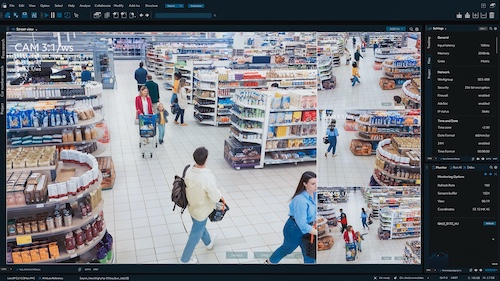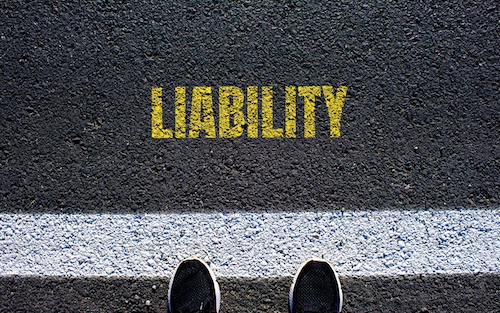Proving Liability Through Surveillance Footage in South Carolina Personal Injury Cases
At McDougall Law Firm in Beaufort, South Carolina, we represent individuals who have suffered injuries due to another party’s negligence. Our team of attorneys handles cases involving slip and fall accidents, car crashes, medical malpractice, premises liability, and wrongful death. We manage every stage of the legal process, from collecting evidence and negotiating with insurance companies to pursuing litigation when necessary.
Surveillance footage can play a critical role in proving liability after an accident. Whether the case involves a slip and fall, a car accident, or another personal injury claim, video evidence often provides the clearest picture of what happened. It helps identify negligent parties, confirm how the accident occurred, and establish fault under South Carolina law. For anyone injured due to a property owner’s or driver’s negligence, timely access to this footage can mean the difference between uncertainty and fair compensation.
A Beaufort personal injury lawyer can use this evidence to build a strong case and protect the injured party’s rights.
Legal Framework in South Carolina: Liability in Personal Injury
Understanding how South Carolina law defines liability helps injured parties prove negligence and recover fair compensation in personal injury claims.
Duty of Care and Legal Responsibility
In South Carolina, a defendant has a legal obligation to act as a reasonable person would in similar conditions. A property owner must keep the premises safe for lawful visitors. When a property owner fails to fix a hazardous condition or warn about it, that failure can support a personal injury claim.
Breach of Duty and Negligent Conduct
A breach happens when the defendant’s actions or inaction violate the duty of care. In a slip and fall accident, a wet floor left unattended or poor lighting may show the property owner breached this duty. A Beaufort personal injury lawyer reviews surveillance footage, incident reports, and witness statements to establish that breach and prove liability.
Causation and Resulting Damages
To prove liability, the injured party must show that the defendant’s breach directly caused their injuries. Medical records and accident reports often confirm this connection. Clear evidence of physical injuries, medical bills, and lost wages strengthens a personal injury case and supports fair compensation for the plaintiff’s injury.
Comparative Negligence in South Carolina
Under S.C. Code Ann. § 15-38-15, South Carolina uses modified comparative negligence. An injured party can recover damages if they are less than 51 percent at fault. The compensation is reduced based on their percentage of fault. This rule affects how courts calculate damages in premises liability and car accident claims.
Importance of Evidence in Proving Liability
Strong evidence is essential for proving negligence and establishing liability. Surveillance videos, medical records, and eyewitness testimony provide direct proof of how the accident occurred. A Beaufort personal injury attorney uses this evidence to show that the defendant’s actions caused the plaintiff’s injury and to help secure fair compensation.
Why Surveillance Footage Matters in Proving Liability
Surveillance footage often serves as one of the strongest forms of evidence in personal injury cases, helping injured parties prove negligence and establish liability.
Clear Visual Evidence of the Incident
Video recordings provide a direct view of how an accident occurred. In a slip and fall case, surveillance footage can show the hazardous condition that caused the fall, such as a spill, cluttered walkway, or uneven surface. This visual evidence supports the injured party’s claim and helps a Beaufort personal injury lawyer demonstrate how the defendant’s negligence caused the injury.
Establishing the Property Owner’s Knowledge
Footage often reveals how long a hazard existed before the accident. If a property owner or staff member ignored a spill or failed to repair a dangerous area, the video can show that they knew or should have known about the condition. This helps prove the property owner breached their legal obligation to maintain a safe environment, a key factor in proving liability.
Strengthening Witness Statements and Reports
Surveillance video can confirm witness statements and details in incident reports. It supports the injured party’s version of events and clarifies any conflicting accounts. This consistency helps establish liability and reduces the chance of disputes over how the accident occurred.
Countering Defense Claims and Protecting Credibility
Insurance companies or defendants may argue that the injured person caused the accident or exaggerated their injuries. Clear video footage can disprove these claims and protect the plaintiff’s credibility. It provides compelling evidence that the property owner failed to act as a reasonable person would, reinforcing the personal injury claim.
Linking Negligence to Measurable Damages
Video evidence helps connect the defendant’s breach to the plaintiff’s injury. It can show the moment of impact, the reaction afterward, and the immediate need for medical treatment. When combined with medical records and financial documentation, the footage helps a Beaufort personal injury attorney prove causation and secure fair compensation for medical expenses, lost wages, and emotional distress.
Practical Steps to Secure and Use Surveillance Footage
Securing and using surveillance footage quickly and correctly can make a major difference in proving liability in a personal injury claim.
Identify All Possible Video Sources
Start by identifying every camera that might have captured the accident scene. This includes security cameras inside a store, parking lot systems, nearby businesses, or even traffic cameras. A Beaufort personal injury lawyer can help locate these sources and determine which ones contain relevant evidence to support the personal injury case.
Act Quickly to Preserve Evidence
Most surveillance systems automatically record over footage after a short period. Acting fast is essential. Send a written request or preservation letter to the property owner or business to prevent deletion. Once litigation is likely, the law requires responsible parties to preserve relevant evidence. Delays can result in lost footage that weakens the personal injury claim.
Obtain and Authenticate the Video
The video should be obtained in its original format to maintain accuracy. Metadata, timestamps, and file integrity are key to proving the footage is authentic. A Beaufort personal injury attorney can ensure proper handling and documentation of the evidence so it remains admissible during the legal process.
Combine Video with Other Supporting Evidence
Surveillance footage works best when supported by other proof. Medical records, incident reports, eyewitness testimony, and accident reconstruction experts all help establish liability. Together, these materials create a complete picture that strengthens the injured party’s position in a personal injury lawsuit.
Use Footage Strategically in Negotiation or Trial
Video evidence can be powerful during settlement discussions or court presentations. Clear visuals help insurance companies and juries understand exactly how the defendant’s negligence caused the plaintiff’s injury. By using this footage effectively, a Beaufort personal injury lawyer can help secure fair compensation for medical expenses, lost income, and ongoing medical treatment.
Strategic Use of Video in Litigation and Negotiation
When used correctly, surveillance footage can become a key piece of evidence that strengthens a personal injury case and helps prove liability during settlement discussions or trial.
Presenting Video Evidence to Insurance Companies
Surveillance footage can influence how an insurance company views a personal injury claim. Clear video proof of a slip and fall accident or other hazardous condition can show the defendant’s negligence and reduce disputes over fault. A Beaufort personal injury lawyer can include the footage in a demand package to help secure fair compensation for medical bills, lost wages, and emotional distress.
Using Footage in Depositions and Court
Video evidence often supports testimony from witnesses and medical professionals. During depositions or at trial, the footage provides a visual account of what occurred, showing how the defendant’s actions violated their duty of care. It helps jurors and judges understand the sequence of events and the full impact of the plaintiff’s injury.
Combining Video with Supporting Documentation
Surveillance footage works best when supported by medical records, financial documents, and accident reports. These materials verify physical injuries, ongoing medical treatment, and tangible financial losses. When combined, this evidence gives a Beaufort personal injury attorney the foundation to prove causation and establish liability in court.
Strengthening Negotiation and Settlement Outcomes
Video evidence can increase a plaintiff’s leverage during negotiation. It provides undeniable proof of the defendant’s breach and can motivate responsible parties to offer a fair settlement. By presenting strong visual evidence early, the injured party often shortens the legal process and secures compensation without extended litigation.
Clarifying Comparative Fault
In cases where more than one party may share responsibility, surveillance footage can help clarify actions before and after the accident. The video shows whether the plaintiff acted reasonably and whether the defendant failed to correct a known hazard. This helps reduce arguments about shared fault under South Carolina’s comparative negligence rule, giving the injured party a stronger position in proving liability.
Contact McDougall Law Firm to Strengthen Your Personal Injury Claim!
If you were injured in an accident and believe surveillance footage can help prove liability, our team at McDougall Law Firm is ready to help. A dedicated Beaufort personal injury attorney will act quickly to preserve vital evidence, analyze video recordings, and build a case that supports your right to fair compensation. Do not wait to take action!
Contact us at 843-438-4386 for a free case consultation today!




